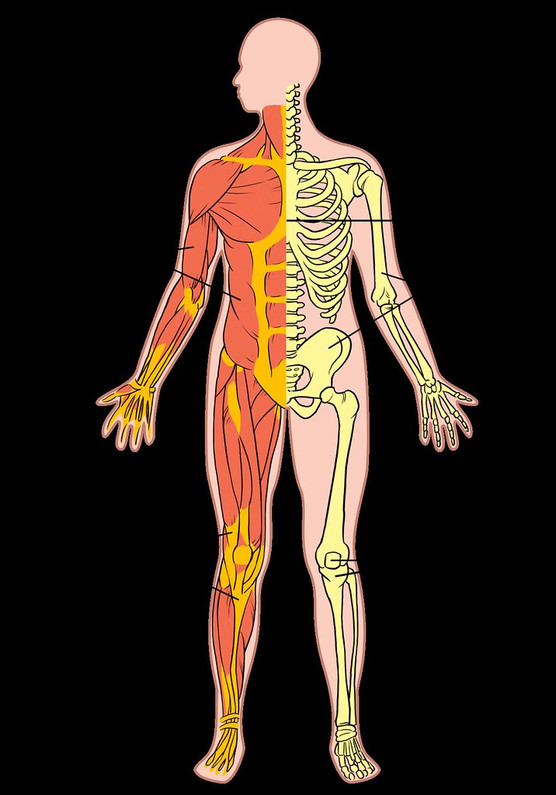The Significance of Musculoskeletal Assessments in Physical Therapy
Musculoskeletal Assessments stand as a cornerstone of physical therapy, serving as a vital tool for clinicians in diagnosing conditions, formulating tailored treatment plans, and monitoring patient progress. These assessments encompass a comprehensive evaluation of the musculoskeletal system, including muscles, bones, joints, and connective tissues, aiming to identify impairments, dysfunction, and contributing factors to musculoskeletal disorders. The benefits of conducting musculoskeletal assessments are numerous. Here is why they are indispensable for physical therapists in delivering effective care.
- Accurate Diagnosis: Musculoskeletal assessments provide physical therapists with valuable insights into the underlying causes of patients' symptoms. By conducting a thorough evaluation of posture, movement patterns, joint range of motion, muscle strength, and flexibility, clinicians can pinpoint specific areas of dysfunction and pathology. This precise diagnostic information forms the foundation for developing targeted treatment plans tailored to each patient's unique needs.
- Individualized Treatment Plans: Armed with the findings from musculoskeletal assessments, physical therapists can design individualized treatment plans that address patients' specific impairments and goals. Whether rehabilitating from an injury, managing chronic conditions, or enhancing athletic performance, personalized interventions are essential for optimizing outcomes. By targeting areas of weakness, imbalance, or restricted mobility identified during the assessment, therapists can implement evidence-based interventions such as therapeutic exercises, manual therapy techniques, and patient education to facilitate recovery and improve function.
- Progress Monitoring: Musculoskeletal assessments serve as a means of tracking patient progress throughout the rehabilitation process. By regularly reassessing key parameters such as strength, range of motion, and functional abilities, therapists can objectively measure improvements and adjust treatment plans accordingly. This ongoing evaluation ensures that interventions are effective and allows therapists to make informed decisions about the course of care, maximizing patient outcomes.
- Preventative Care: Beyond diagnosis and treatment, musculoskeletal assessments play a crucial role in preventative care. By identifying biomechanical imbalances, movement dysfunctions, and risk factors for injury, therapists can implement strategies to prevent future musculoskeletal problems. Whether through corrective exercises, ergonomic recommendations, or movement re-education, proactive interventions help mitigate the risk of injury and promote long-term musculoskeletal health.
- Patient Empowerment: Musculoskeletal assessments empower patients by providing them with a deeper understanding of their condition and progress. Through education and involvement in the assessment process, patients gain insight into their strengths, limitations, and treatment goals. This collaborative approach fosters patient engagement and adherence to treatment plans, ultimately leading to more successful outcomes.
In ending, musculoskeletal assessments play a pivotal role in the practice of physical therapy, offering a comprehensive framework for diagnosis, treatment planning, and monitoring of patient progress. By conducting thorough evaluations and utilizing objective assessment tools, physical therapists can tailor interventions to address patients' specific needs, optimize outcomes, and promote musculoskeletal health and function. As frontline healthcare providers, physical therapists continue to rely on musculoskeletal assessments as an indispensable tool in delivering high-quality, patient-centered care.
Related Blog Posts:
Enhancing Musculoskeletal Assessment: The MicroFET 3 by Hoggan Scientific
Best of Both Worlds: The MicroFET 3 Is a Muscle Testing Dynamometer and an Inclinometer
Recent Posts
-
How Occupational and Hand Therapists Perform Initial Hand Function Evaluations
When a patient begins hand therapy—whether recovering from an injury, surgery, or neurolo …Apr 6th 2025 -
What to Expect During Hand Therapy: A Guide for Patients and Caregivers
If you’re starting hand therapy—whether after surgery, a stroke, or a neurological …Apr 6th 2025 -
Improve Hand Function and Dexterity with the Neofect Smart Pegboard
The Neofect Smart Pegboard is a revolutionary tool in the field of occupational therapy. I …Mar 25th 2025



